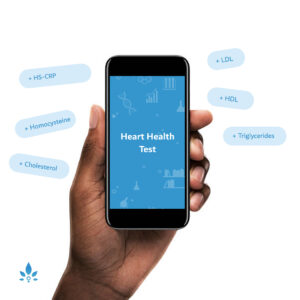How to Take Care of Your Heart During Pregnancy


Your heart is working overtime during pregnancy, supporting healthy circulation for you and your baby, so it makes good sense to take a few precautions to protect your heart health.
At its most basic level, your heart is a pump that responds to the amount of blood you have and the oxygen you need. When the amount of blood increases by 30-50 percent during your pregnancy, your heart pumps harder and faster to support your circulation.
The first step for protecting your heart health should ideally occur before you become pregnant. If you are thinking about having a baby and have any of the following conditions, talk to your doctor or a cardiologist to see if there are any special considerations, treatments, or medications you should take before getting pregnant:
- Having a medical history of a heart condition, such as a heart murmur, valve disease, rheumatic fever, Marfan syndrome, or heart rhythm disorder
- High blood pressure
- High cholesterol
- History of a cardiac event, such as a stroke
When you do become pregnant, take the following heart-healthy steps:
Exercise—Exercise helps reduce stress during pregnancy and help you maintain a healthy weight, and is overall beneficial to your cardiac health.
If you were not a marathon runner before pregnancy, these nine months are probably not the time to try your first one! Stay at your previous level of intensity with exercise unless your doctor suggests otherwise. If you haven’t been exercising prior to your pregnancy, consider low-impact exercises such as walking (but fast enough to get your heart rate up!), riding a stationary bike, or taking exercise classes specifically geared toward pregnant women.
Eat a heart-healthy diet—When you’re pregnant, the rules change a little regarding a heart-healthy diet because some foods that were okay and heart-healthy before (including sprouts and store-made mayo-based salads) may need to be avoided or limited during pregnancy. It’s also a good idea to limit your sodium intake. Sodium can increase blood pressure.
While you have to be careful with your fish choices during pregnancy to avoid mercury exposure, avoiding fish entirely means you and your baby miss out on heart-healthy omega-3 fatty acids. Skip high-mercury fish such as mackerel, shark, swordfish, and tilefish in favor of at least two servings of low-mercury fish such as cooked salmon, catfish, cod, and tilapia. You can also eat no more than 6 ounces of canned tuna each week.
If this advice seems somewhat back-to-basics, it is. You have enough to worry about during your pregnancy. Keeping your food and exercise choices simple and healthy can have great rewards for your heart and overall well-being.
Reviewed by Dr. Jen Lincoln, November 2018
Sources:
- Cleveland Clinic
- Heart Disease & Pregnancy.
Go Red for Women - How to Stay Heart Healthy During Pregnancy.
Mayo Clinic - Heart Conditions and Pregnancy: Know the Risks.
University of Maryland Medical Center - Heart-Healthy Diet.
WomensHealth.gov: Pregnancy: Staying Healthy and Safe.
Powered by Bundoo®












































